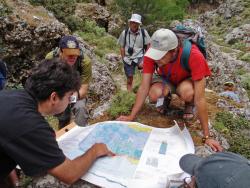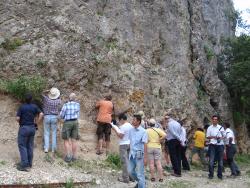Ecotourism
 Ecotourism is a unique form of tourism development that theoretically supports and provides incentives for nature conservation. It has been said that ecotourism brings together two conflicting forces, tourism and environmentalism. Tourism involves a developmental and a recreational component, whereas environmentalism involves public sensitization and environmental awareness, and financial support for nature conservation. Ironically by using the term ‘ecotourism’ local government agencies and private interests can create destructive and inappropriate tourist development in environmentally sensitive areas. It is very easy to water-down the meaning of ecotourism; and professional planners and tourism advisors should take great care not to degrade its important value as an alternative form of “eco-development”.
Ecotourism is a unique form of tourism development that theoretically supports and provides incentives for nature conservation. It has been said that ecotourism brings together two conflicting forces, tourism and environmentalism. Tourism involves a developmental and a recreational component, whereas environmentalism involves public sensitization and environmental awareness, and financial support for nature conservation. Ironically by using the term ‘ecotourism’ local government agencies and private interests can create destructive and inappropriate tourist development in environmentally sensitive areas. It is very easy to water-down the meaning of ecotourism; and professional planners and tourism advisors should take great care not to degrade its important value as an alternative form of “eco-development”.
 The idea and application of ecotourism poses fascinating challenges. One of the challenges for the “ecotourism industry” is to assist in moving ecotourists from a minimal ‘‘passive’’ position to a more active contribution to the sustainability of biodiversity conservation actions, including protected-area management. Planning for ecotourism is therefore extremely important and is considered a key-stone feature in many protected-area schemes.
The idea and application of ecotourism poses fascinating challenges. One of the challenges for the “ecotourism industry” is to assist in moving ecotourists from a minimal ‘‘passive’’ position to a more active contribution to the sustainability of biodiversity conservation actions, including protected-area management. Planning for ecotourism is therefore extremely important and is considered a key-stone feature in many protected-area schemes.
In order to support genuine ecotourism development within and outside of protected areas we can contribute by getting involved in the following ways:
- Promote effective ecotourism ventures
- Bring natural history education within ecotourism
- Plan for protection and monitoring of sensitive features and sites
- Plan for achieving recreation without negative impacts to nature or local culture
- Train eco-guides and develop effective codes-of-conduct
- Create more protected-areas where they have grounds to exist, even small ones
- Explore the social impacts of ecotourism
- Get local communities involved
- Give-back to local communities part of the profits of the ecotourism scheme periences.
